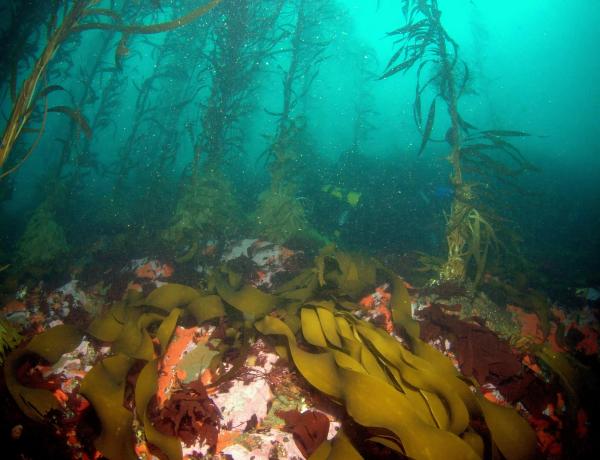The areas referred to as the South Atlantic UK Overseas Territories (SAOT’s) are comprised of Ascension Island, Falkland Islands, Tristan da Cunha and St Helena Island.
The territories span the South Atlantic region from just south of the equator to 1,200 km north of the Antarctic Peninsula.
Ascension Island, Tristan da Cunha and St Helena Island are small (<220 km2), volcanic islands around the mid-Atlantic ridge. Each of these islands has designated an area of marine protection in its waters, covering a total area of over 1.5 million km2. The Falkland Islands are a larger archipelago (>12,000 km2), and although not having a formal marine protection designation, undertakes a variety of marine spatial planning activities within its Exclusive Economic Zone (EEZ).
The flora and fauna of the territories are determined largely by their remoteness, and the islands have a high level of unique, iconic species. The waters around the SAOT’s support a diverse array of marine life, with each being home to both locally resident species, and larger migratory species.
Changes in sea temperature, ocean currents, storms and waves, and sea level are affecting coastal and marine ecosystems and the beneficial services that SAOT communities derive from them (e.g. food security, tourism, recreation, and protection from natural hazards).
There are limited examples of nature-based solutions within the SAOT’s currently. Most examples focus on elements (habitats, species etc.) which are likely to be exacerbated by a change in climate, rather than addressing climate change factors directly.
Land management initiatives being implemented in the SAOTs may act as nature-based solutions for issues in the marine environment. Restoration of St Helena’s cloud forest habitat will improve management of island water resources, provide security of supply and enable resilience to climate change. Better water management for the island has the capacity to decrease runoff, potentially reducing freshwater runoff into the marine environment, one of the suspected causes of a widespread demersal fish die off in 2020. Restoring the habitat will have indirect benefits by increasing its carbon sequestration rates, helping to reduce atmospheric CO₂.
Similar approaches are also being used to restore peat habitats in the Falklands. These habitats store large quantities of carbon which are in danger of being released to the atmosphere, due to climate change impacts combined with poor land management practices.
The impacts of climate change in the SAOT’s are relatively poorly documented and understood, and there are often multiple stressors (e.g. human induced pressures) that may prove more damaging before the long-term effects of climate change. Although it is suggested that some climate change impacts have been observed, most can only be classified as low confidence due to lack of data, understanding of the species, or the influence of other pressures.
More research and data collection are required to understand and predict change and plan mitigating actions more accurately. Where clear evidence of climate change is available, more funding is required to implement solutions. As resources are limited, it is likely that effort will need to focus on the development of keystone or indicator species.
There is an urgent need to build resilience and climate adaptation measures. However, this will rely largely on funding from outside sources. That said, small island communities are used to innovating and adapting to survive.
Please cite this information as Hobbs, R., Henry, L., Martin, S., Glass, T., Pelembe., T. and Baum, D. (2021) Summary - key climate change effects on the coastal and marine environment around the South Atlantic UK Overseas Territories. MCCIP Science Report Card 2021.
MCCIP wishes to acknowledge the contributions of Andy Richardson (Ascension Government), Rebecca Cairns Wicks (St. Helena Government), Kedell Worboys (UKOTA), Jonathan Hall (RSPB International), Alexander Arkhipkin (Falklands Government). who helped to identify the priority climate change issues at the Regional Workshop.
The contributions of each of the SAOT governments, funding programmes such as the Dawin Initiative, BEST and UK Governments Blue Belt programme, as well as support from a variety of NGO’s in the region are all key in undertaking the scientific research and evidence gathering that is key for monitoring and predicting climate change.
